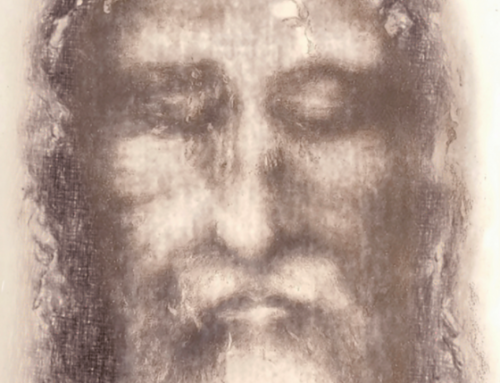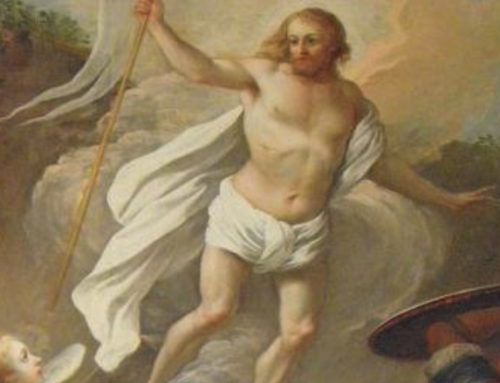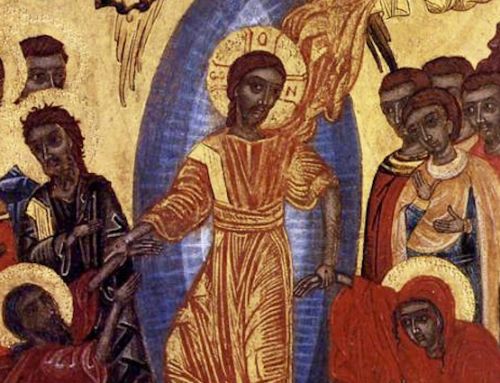O, ye self-protective children of the twenty-first century, I hope you will see that suffering can be redemptive, that it can bridge the gap between where we are and where we hope to be.
Author’s Introduction: Imagine if Homer, Virgil, Dante, Chaucer, and the other great poets of ancient Greece, Rome, and the Middle Ages had been given the gift, not only to peer into the twenty-first century, but to correspond with us who live in that most confusing and rudderless of centuries. Had it been in their power to do both of those things, what might they say to us? How would they advise us to live our lives? What wisdom from their experience and from their timeless poems might they choose to pass down to us?
Aeschylus: On Suffering
I see that your age is averse to suffering. I don’t suppose there has ever been an age that has enjoyed suffering, but yours seems bent on avoiding it at all costs. You have remedies for every ache and pain, whether it be physical, emotional, or spiritual. You insulate yourselves and your children from suffering and applaud yourselves for your ingenuity. Many of you have come to believe that you have a right not to suffer.
But no such right exists.
The world we live in can only flourish through suffering. We see that lesson in nature: in the seed that must die and be buried before it can grow; in the grape that must be harvested and crushed before it can yield its precious liquid; in the stalks of grain that must be ground between heavy millstones to provide us with wheat for our bread.
A mother bears her child in pain, even as her husband tills the field by the sweat of his brow. The craftsman learns his art through intense labor and bruised hands. And peace is gained only through the suffering and death of war. There are few, if any, goods that come to us except through trial and error and tribulation.
Knowledge and suffering are not the same thing, and yet, we seem so constituted that we must, ever and again, suffer into wisdom.
#
My Orestes was declared innocent of the crime of matricide by the great tribunal established by Athena, but his road to Athens was a long and painful one. The court may have pronounced him “not guilty,” but he had to work out his own personal guilt, fear, and ritual impurity through weary journeys to distant shrines. Pursued by the Furies, he spent sleepless nights and days wandering across the face of the earth. But his travels made him wise and allowed him to see the greater story of which he was only a part.
Through pain, Orestes learned there was a sickness in his blood that needed to be purged and appeased. His great-great-grandfather, Tantalus, had attempted to feed his own son, Pelops, to the gods and had been punished terribly for his crime. But the evil persisted in the blood, corrupting the generations that followed.
Pelops’ son, Atreus, after learning that his wife had had an affair with his brother, devised a horrible revenge. Inspired by the evil deeds of his grandfather, he killed his nephews and fed them to their father. But one nephew, Aegisthus, survived, and swore perpetual enmity against the house of Atreus.
While Atreus’s son, Agamemnon, was fighting at Troy, Aegisthus wormed his way into the heart of Agamemnon’s wife, Clytemnestra. She was already bitter against her husband, for he had sacrificed their daughter, Iphigenia, to win favorable winds to take his fleet of warships to Troy.
What followed next you already know from my previous letter: Clytemnestra and Aegisthus killed Agamemnon on his return to Greece, only to be killed themselves, many years later, by the returning Orestes.
While Orestes fled and hid and suffered, he thought back on the deeds of his ancestors and understood that his pain was purposeful, that the gods were using it to bring a final reconciliation to five generations of lust and betrayal. He came to understand that he had been chosen as a bridge between the generations, one who would restore life and peace and love.
And something more. For Orestes’ suffering, as I said in my previous letter, helped bring a transition in the divine realm as well: the shift from primal Furies to civilized Olympians. Without the suffering of Orestes that transition could not have been made. The heavenly realm, along with the House of Atreus, would have remained trapped in enmity and conflict.
#
Such was the case with another of my dramatic heroes: Prometheus. Although he helped Zeus overthrow the Titans and ascend the throne of Mount Olympus, Prometheus came to see that Zeus was tyrannical and cared nothing for the mortals he had created. To help us in our misery and weakness, Prometheus stole the secret of fire from Zeus and gave it to man. For that, Zeus chained him to a rock and set an eagle to devour his liver. Each night the liver regenerated; each day the eagle devoured it anew.
There Prometheus remained for a thousand years. No one, man or god, has ever suffered as he did. But his suffering, like that of Orestes, led to wisdom and peace and reconciliation. In the end, Zeus put aside his tyranny, even as Prometheus put aside his rebelliousness. Prometheus, like Orestes, acted as the bridge between a violent past and a hopeful future.
#
O, ye self-protective children of the twenty-first century, do not think that I except any of you who read this letter to be another Orestes or Prometheus! But I hope you will see that suffering can be redemptive, that it can bridge the gap between where we are and where we hope to be.
Change is slow and difficult and painful. Our wills are so stubborn, so set in their ways, so resistant to the new and the untried. We set our faces against the very things that will transform our lives for the better.
Out of suffering comes both a calm and a vision. The calm rests on our hard won knowledge that we can endure, that we can make it through this phase of the struggle. Having experienced the worst and risen above it, we realize that there is something in us that transcends the merely physical. Ultimately, we stop thinking about ourselves altogether and rest in the arms of something, or someone, larger and wiser.
And that is precisely when the vision comes: when we stop fretting and fuming and feeling sorry for ourselves, and look upward and outward instead. It is then that we catch sight of the grander design, the fuller pattern, then that we perceive that our suffering is serving a purpose, that it is pushing us and the world around us to a richer, more glorious end.
—Aeschylus
The Imaginative Conservative applies the principle of appreciation to the discussion of culture and politics as we approach dialogue with magnanimity rather than with mere civility. Will you help us remain a refreshing oasis in the increasingly contentious arena of modern discourse? Please consider donating now.
Editor’s Note: The featured image is “The Remorse of Orestes” or “Orestes Pursued by the Furies” (1862) by William-Adolphe Bouguereau, courtesy of Wikipedia.








Leave A Comment